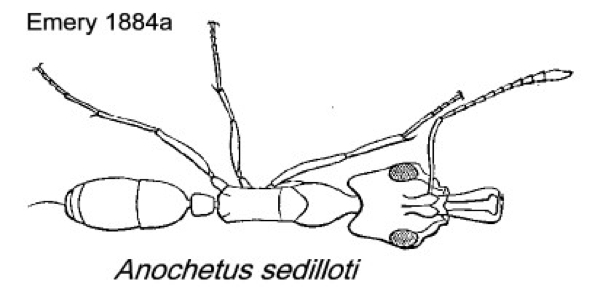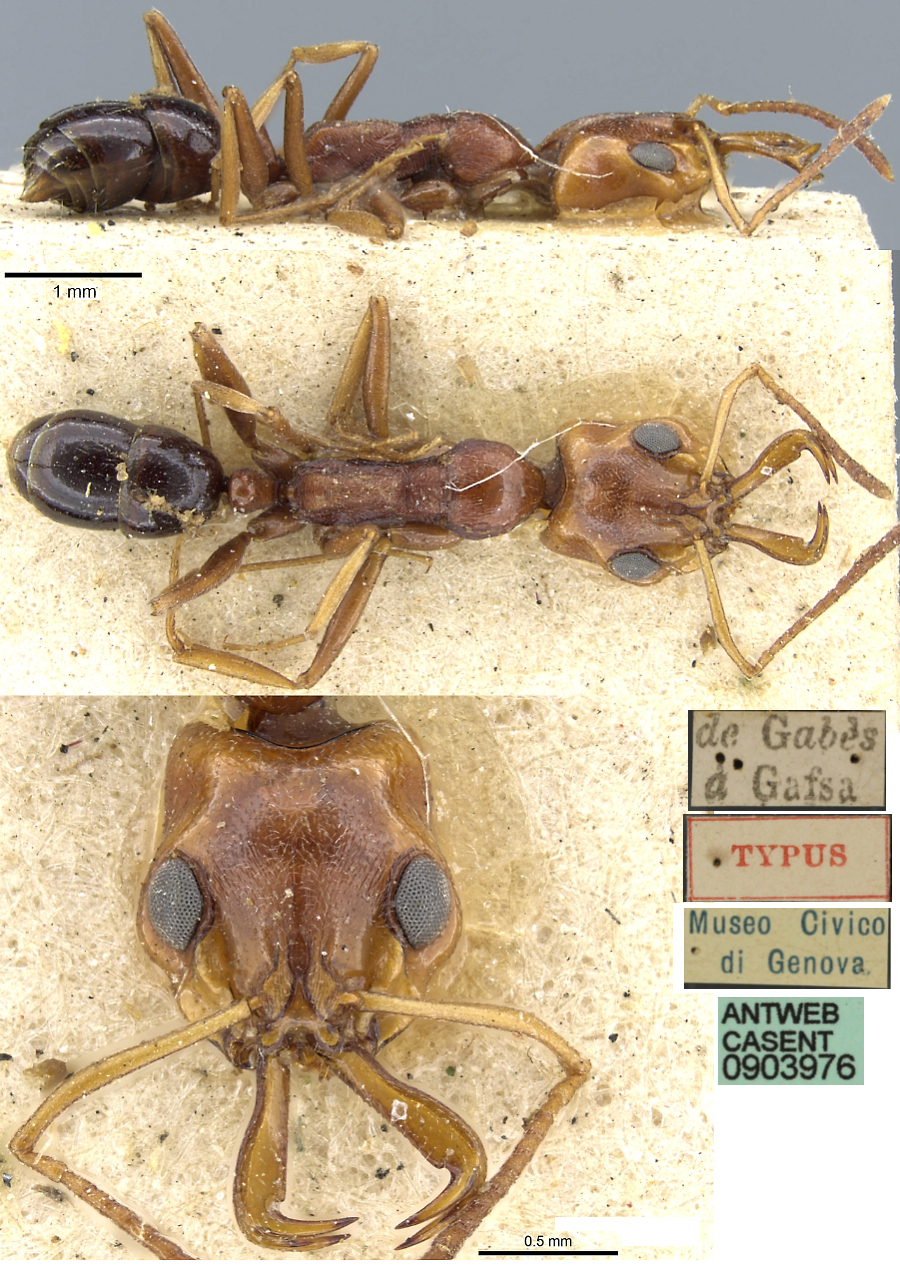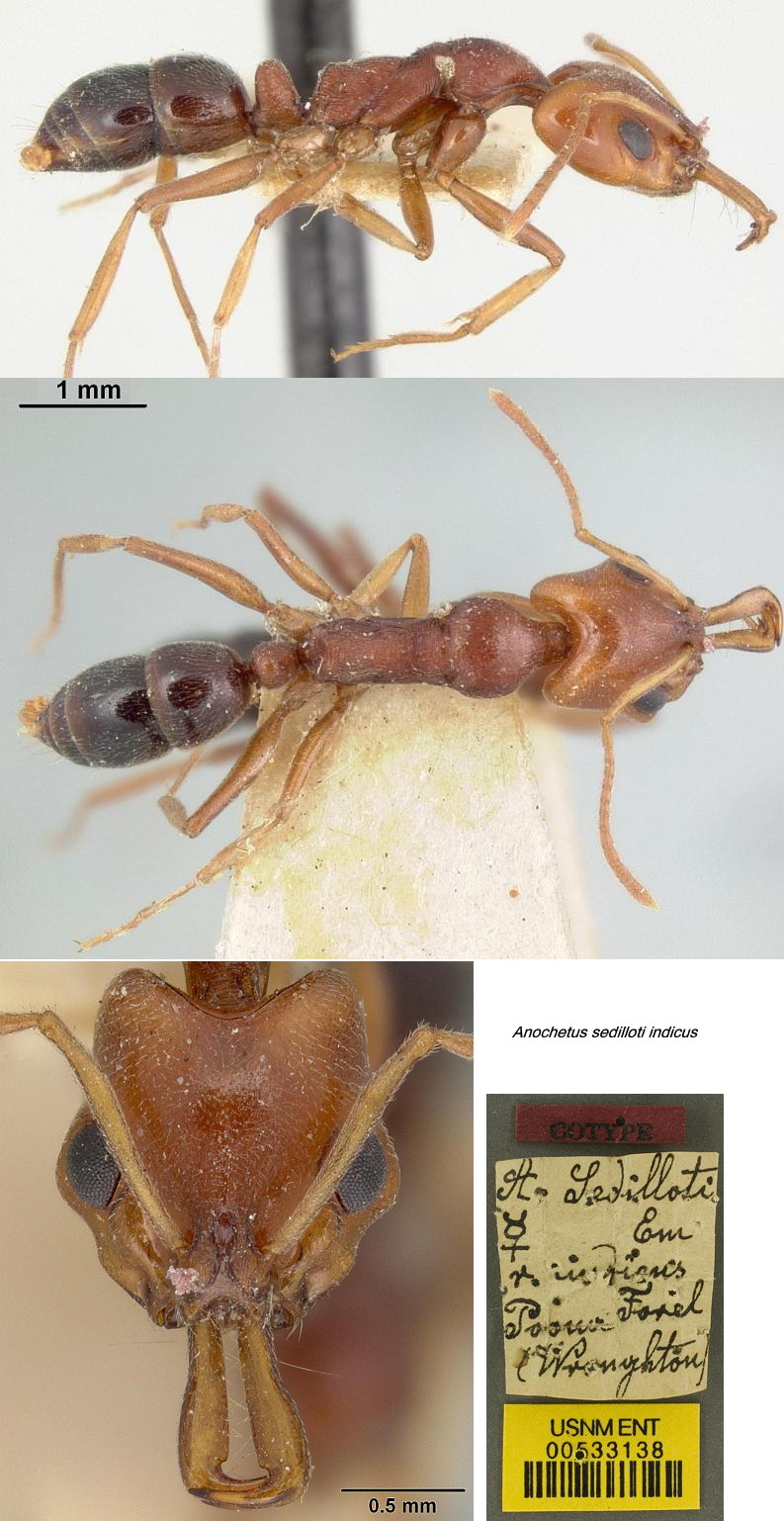Anochetus sedilloti Emery
 Type location Tunisia
(Anochetus Sedilloti n. sp.,
Emery, 1884a: 377, illustrated, worker; Santschi, 1907: 325, male) from
Gabes and Gafsa, colls. Levéillé and Sédillot - see below Type location Tunisia
(Anochetus Sedilloti n. sp.,
Emery, 1884a: 377, illustrated, worker; Santschi, 1907: 325, male) from
Gabes and Gafsa, colls. Levéillé and Sédillot - see below
junior synonym indicus (Anochetus
Sedilloti Emery var. indicus
nov. var., Forel, 1900c: 61, worker, queen &
male) from India, Bombay,
Poona, Wroughton - see below
all forms described (Brown, 1978: 559, Bolton, 1995)  . .
|
 Emery's
(1884a) description is at Emery's
(1884a) description is at  . Forel's (1900c)
description of indicus
is at . Forel's (1900c)
description of indicus
is at  . Santschi's (1907) description of the male
is at . Santschi's (1907) description of the male
is at  . Brown (1978c) gave a description at . Brown (1978c) gave a description at  . .
|
Brown
(1978c) gives no more than a summary description of it as being a
medium sized species with large eyes and a thick, often barrel-shaped
petiolar node, rounded at the summit; antennal scapes short to moderate
in length; widespread sculpture.
Brown described it as widespread in Africa, having seen
worker samples from Ghana, at Legon (D. Leston), Sudan
and Eritrea and sighting records from Senegal, Chad
and Timbuktu (in Santschi, 1930a: 55, also Mali, Koulouba, by
Andrieu, vi.1928). It is known also from western India (shown at the
bottom).
|
 The photomontage of the type worker
is collated from http://www.antweb.org/specimen.do?name=casent0900511. The photomontage of the type worker
is collated from http://www.antweb.org/specimen.do?name=casent0900511.
|
 The
photomontage of indicus is
collated from The Smithsonian Insitute type images at http://ripley.si.edu/ent/nmnhtypedb/public/specimeninfopage.cfm?publicconsumption=1&typespecimenID=452 The
photomontage of indicus is
collated from The Smithsonian Insitute type images at http://ripley.si.edu/ent/nmnhtypedb/public/specimeninfopage.cfm?publicconsumption=1&typespecimenID=452
This
is some 15% larger than the type form, with visible differences in the
head shape, which does not narrow so markedly behind the eyes,
proportionally smaller eyes, and is matt and not so glossy. Comparison
of fresh specimens might well justify separation of indicus as a distinct
species. The Senegal specimens (below) are a nearly exact match
for the Algeria type.
|
 The
photomontage is of a worker collected from Senegal, collector B Ndiaye. The
photomontage is of a worker collected from Senegal, collector B Ndiaye.
|
|